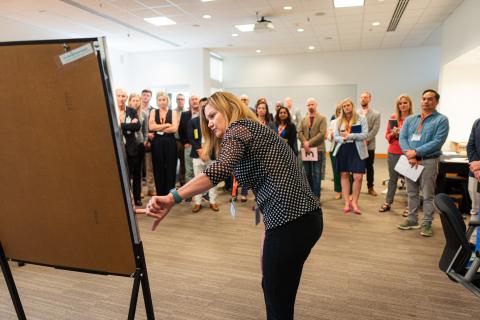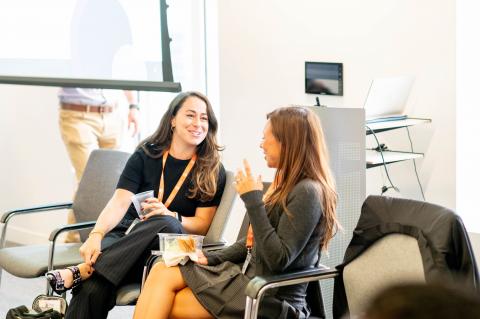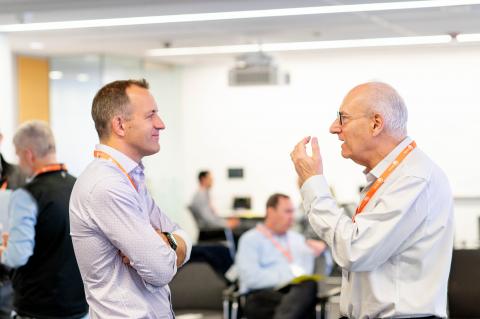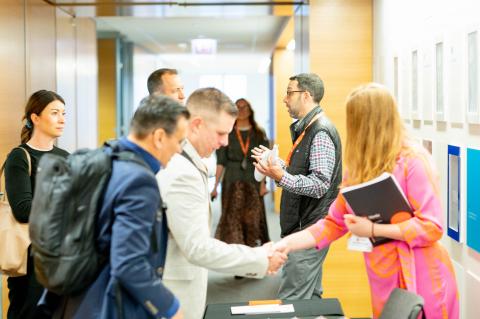Speaking to iVentiv Content Director Temi Bamgboye, Alison Shea, the Former VP of Global Talent Development & Learning at State Street, shared her insights on the pivotal role of diversity, equity, and inclusion (DEI) and belonging in organisations. Shea brings a wealth of experience, including her tenure at Thomson Reuters, not to mention a genuine passion for talent development and learning.
How Can Belonging Help Organisations Achieve Success?
Alison explained that she views learning, talent development, diversity, equity, inclusion, and belonging as "inextricably linked" elements that cannot, and should not, be separated. She posited that the worlds of talent, learning and diversity come together to help individuals and organisations grow. For Alison, “belonging is what we're aiming for with our inclusion efforts". Inclusion is a strategic and tactical effort, and belonging serves at the measure of its success.
Alison emphasised that the concept of belonging is relatively new in corporate spaces, but in her view it's crucial that organisations recognise its importance. "Our inclusion efforts in corporate spaces are meant to drive a feeling of belonging”, she said. “We want to get to a place where people feel that no matter who they are, where they are [or] how they got there, that they belong in the organisation".
She also underscored the significance of harnessing the full power of diversity, both visible and invisible. Alison argues that it is important to remember that it isn’t just a collection of differences that create inclusion and belonging, but a set of strategic actions, plans, and feelings cultivated in the workforce.
Discussing the journey to creating a culture of belonging, Alison discussed how organisations can stop looking at DEI as a problem to solve. Instead, she says, they should view DEI as a mechanism to enhance their success. She stated, "we look at it as a mechanism to increasing our success… by making sure that you have access to the best talent, whoever they are, wherever they are, and that they can bring their whole selves to work and feel included, feel like they belong and therefore perform."
Alison also addressed the idea of "visible" and "invisible" markers of diversity, explaining that diversity goes beyond race, gender, and geography. By focusing on additional factors such as neurodiversity, learning disabilities, language proficiency, diversity of experience and identity, she argues that organisations can invite a broader range of talents and perspectives.
Her advice to DEI executives is to align their DEI goals with their business goals, eliminating any barriers to success, including unconscious bias. Alison highlighted the importance of checking any unconscious bias that may exist in AI tools used by organisations. The saying "what gets measured, gets managed" holds true in this context, especially once baked into an algorithmic system.
She also argued that, if organisations treat DEI as a fleeting trend, their employees and clients will quickly realise it. To remain successful in the future, she says, organisations need to sincerely invest in DEI and belonging, ensuring that their talent feels valued and aligned with the company's values.
Are Leaders Vital for Your DEIB Strategy?
Leaders, Alison says, are vital to making a success of diversity efforts. "Leaders are critical in this because leaders, as the title implies, lead the way," as she put it. Significantly, Alison emphasised that, in her view, perfection isn't necessary. Instead, she encourages leaders to embrace their vulnerability and learn from their experiences. "It's their vulnerability and telling the story of their aha moment... that has made a huge, huge difference in organisations. It is a game changer."
Addressing obstacles leaders often encounter in DEIB, Shea acknowledged two key challenges: awareness and empathy. She explained that if a leader is not directly affected by bias or discrimination, they might be oblivious to these issues within their organisation. "If you are not the person who is going to be affected by bias or discrimination... you're not going to see it through the windshield of your car going forward." However, the cultivation of empathy and understanding through open dialogue can lead to a shift in perspective.
Elaborating on the importance of listening, Shea commented, "when the leaders are listening to the real, lived experiences of their employees... it then sensitizes them in a way, you know, that they that they then are seeing things and hearing things that they didn't see or hear before."
Beyond listening, Alison emphasised the power of voice amplification and recognition, explaining that leaders should "listen for the voices that are not getting heard and we can help amplify them". She further recommended assessing meeting dynamics to ensure everyone's voice is heard, regardless of gender, race, or location.
Reflecting on the importance of inclusive decision-making, Alison noted the potential for saving time and effort by involving diverse stakeholders. She shared one standout anecdote from one of her former roles, where bringing in a diverse range of stakeholders made all the difference. "We were about to launch this whole new program and... we discovered that program was already working in another country." Alison argued that it's crucial for companies to seek out and listen to "geographically diverse voices", thereby fostering more inclusive and efficient operations.
Alison’s advice to leaders is to embrace vulnerability, learn from personal experiences, actively listen to their employees' lived experiences, amplify unheard voices, and involve diverse voices in decision-making. These, she proposes, are vital steps in driving DEIB goals and business success.
Why is Empathy a Critical Skill in the Workplace?
Alison also shared her perspective on the critical importance of empathy in the workplace. She asserts that empathy, while valuable, is often misunderstood and can lead to unintentional harmful behaviors if not properly managed.
She also emphasised that we must look at empathy as a dynamic, complex process, rather than a simple, static skill. In her words, "empathy, like many things, can be used for good or evil," citing the concept of "ruinous empathy" popularized by Kim Scott. Alison explained this as making assumptions based on empathy and inadvertently disempowering the person you're trying to empathise with. For example, not including someone who has just returned from maternity leave in a new project under the assumption they wouldn't want to travel.
Alison makes it clear that real empathy requires us to actively challenge our assumptions. "Empathising means opening ourselves up and listening," she said, "but it doesn't mean that we then decide for somebody based on our impression of what they might feel or based on our own feelings." It's about understanding other people's perspectives without imposing our own, a task which she admits is not always easy but critically important in fostering diversity and inclusivity.
To foster this authentic empathy, Alison suggests a straightforward yet effective approach: asking. Something as simple as asking a team member about their feelings or preferences can make a significant difference. "We have this trip coming up and, you know, I would love to have you there, but, you know, how do you feel about that? Would you feel like that is the right way?" This type of dialogue, she argues, allows employees to feel included and have a say in decision-making processes.
As businesses strive to create inclusive, empathetic cultures, Alison highlights what she sees as the importance of resilience and an openness to learning. "Don't be afraid of making mistakes because we all make mistakes," she says. Everyone is a work in progress, she argues, and the language and norms of diverse groups are constantly evolving.
For those committed to personal and organisational growth, Alison advises embracing learning: "Just be curious... life is just about learning." As you navigate the challenging but necessary journey toward empathy and inclusivity, Alison’s advice is to offer grace to others—and ourselves—as we learn. Because, as Shea puts it, "there's always something new to learn at every corner."
Alison Shea is a fourth-generation educator who is drawn to all aspects of strategic growth for people and organizations. Whether heading up Global Learning & People Success in tech start-ups, or transformations in financial services at State Street as the Vice President of Global Learning and Talent Development, Diversity, Equity, Inclusion & Belonging has always been a key component of her strategy.
Alison’s background includes consulting, learning product & platform technology development and she founded The Learning Manifesto, dedicated to activating the creation of meaningful learning for all.
In addition to speaking at conferences and delivering award-winning workshops, Alison is passionate about volunteering, mentoring, and paying it forward. She has an MEd in curriculum and instructional technology. Find out more about how to join the conversation with leaders in learning and talent like Alison here.









